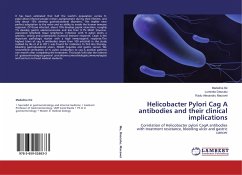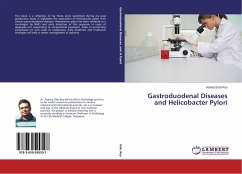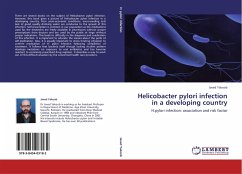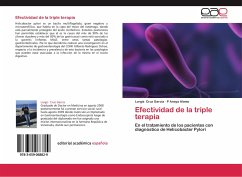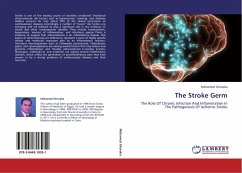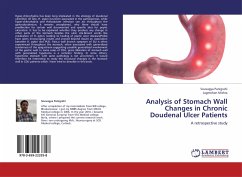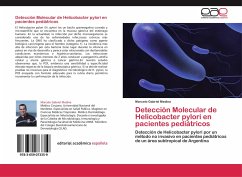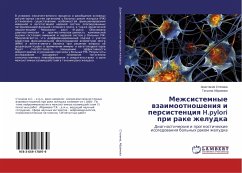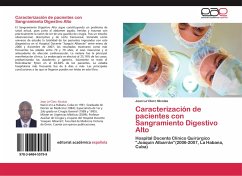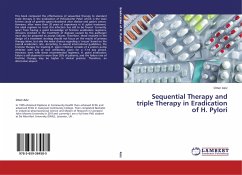
Sequential Therapy and triple Therapy in Eradication of H. Pylori
Versandkostenfrei!
Versandfertig in 6-10 Tagen
36,99 €
inkl. MwSt.

PAYBACK Punkte
18 °P sammeln!
This book compared the effectiveness of sequential therapy to standard triple therapy in the eradication of Helicobacter Pylori which is the main known cause of gastritis gastro-duodenal ulcer disease and gastric cancer. However, after more than 20 years of experience in H. pylori treatment, the ideal regimen to treat this infection has still to be found. Currently, apart from having a good knowledge of first-line eradication regimens, clinicians involved in the treatment of diseases caused by this pathogen must also be prepared to accept failures. Therefore, those involved in the design of a ...
This book compared the effectiveness of sequential therapy to standard triple therapy in the eradication of Helicobacter Pylori which is the main known cause of gastritis gastro-duodenal ulcer disease and gastric cancer. However, after more than 20 years of experience in H. pylori treatment, the ideal regimen to treat this infection has still to be found. Currently, apart from having a good knowledge of first-line eradication regimens, clinicians involved in the treatment of diseases caused by this pathogen must also be prepared to accept failures. Therefore, those involved in the design of a treatment strategy should not focus on the results of primary therapy alone, but also the make choices regarding a 'rescue' based on the overall eradication rate. According to several international guidelines, the first-line therapy for treating H. pylori infection consists of a proton pump inhibitor with any of two antibiotics, given for a 7-14 day period. However, even with these recommended regimens, H. pylori eradication failure is still observed in more than 20% of patients, and the failure rate of first-line therapy may be higher in clinical practice. Therefore, an alternative sequen





